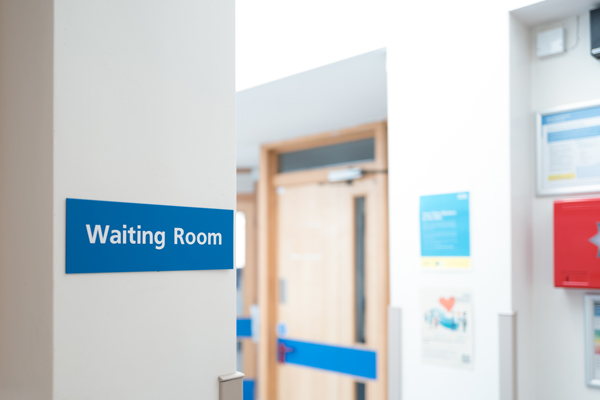Is it hard to find a job as a nurse?

Looking for a job as a nurse is an exciting prospect that can be highly rewarding. However, it can also be competitive and difficult to attain because of the level of qualifications and skills needed. You may be apprehensive about searching for nursing jobs because of the uncertainty involved. In this blog, we'll answer the common question: is it hard to find a job as a nurse? We will go through some common pathways to becoming a nurse, tips on how to find a job as a nurse and how to set yourself apart from the competition when applying.
Is it hard to find a job as a nurse?
Recent reports have warned that up to half of general practice nursing posts in England could be vacant in the next decade due to increasing demand on the health service and a higher rate of nurses leaving the profession. This potentially forecasts a gap for aspiring nurses to fill, with a clear demand. Plus, 95% of nursing graduates find employment within the first 6 months of graduation.
Despite this, though, it does not necessarily mean it is easy to find a job as a nurse. Especially if you're already qualified, you're competing with a raft of newly qualified students who are all applying for roles. It's a tough job that requires specific qualifications and skills that you will have to prove in order to secure a position. If you're able to go through the training process and prove that you have the right expertise, you should find little issue gaining employment as a nurse, but the path to getting there can be quite confusing and difficult.
Of course, it depends on many other variable factors too, such as how flexible you are with where you're applying to work, the availability in this area, the type of nursing you are applying for, and your experience. To tackle this, ensure you apply to as many different jobs as you can, trying to limit yourself as little as possible.
What qualifications do I need to become a nurse?
To become a registered nurse in the UK, you need to complete a nursing degree at university. This requires GCSEs of at least a grade C/4 in Maths or English. Then, you will most likely have to complete 3 A Levels or equivalent qualifications to meet the entry requirements of your chosen university - all universities have unique entry requirements, so be sure to check for the subjects or grades/UCAS points they require.
When applying for a nursing degree, research whether the one at the institution you are aiming for is approved and will result in you becoming a registered nurse upon completion. You may have to apply for a specific specialism of nursing at this point, so do your research (and perhaps some work experience) to inform your decision between adult nursing, midwifery, child nursing, special education needs nursing and mental health nursing.
Your application will need to be supported with good academic records as well as proof that you are passionate about and suitable for a nursing degree. In 2020, there were 47,320 applicants for nursing courses, so it's not easy to get accepted onto such a competitive course. Plus, on average, only 20,000 out of every 60,000 students who apply to university end up graduating. Having the tenacity to complete the degree, which could be challenging at times, will set you up well to secure a job.
How can I get experience?
Getting work experience in order to get a job may seem contradictory, but it isn’t as difficult as it may sound. Whether you are newly qualified or have been for a while and are looking for a new job, any relevant experience in looking after people will greatly support your CV, whether this was in a full-time, part-time, voluntary, or internship role. You can gain experience by applying to work as a care worker, healthcare assistant and there are also roles as nursing associates. This will give you first-hand experience and show you if you have what it takes to be a nurse as well as the skills you will need to develop going forward.
Any job or role you have taken up will strengthen your application, but always try to link it back to how it makes you suitable to be a nurse, such as how you have shown and developed initiative, a desire to help others, team working or problem-solving.
What nursing jobs could I get?
Although your nursing degree will most likely be specialised, there are many different career pathways in nursing that greatly improve employment prospects for nurses. There are multiple progression routes and specialisms you can go into, and you have the option to retrain once qualified because the skills developed are so highly sought after and transferable. Some of the roles you may consider include:
- Adult nurse
- Children’s nurse
- Midwife
- Paramedic
- Mental health nurse
- Staff nurse
- Prison nurse
- Learning disability nurse
How do I find a job as a nurse?
To search for nursing jobs globally and increase your employability, sign up for Globe Locums today to browse our job vacancies and make finding a job as a nurse easier. We are currently advertising a vast choice of nursing jobs across the UK on a locum and permanent basis, both in the NHS and in the private sector. If you have more questions like 'is it hard to find a job as a nurse?', we're more than happy to answer them.

Latest Nursing Jobs
We currently have a variety of locum and permanent vacancies across the UK and Ireland





